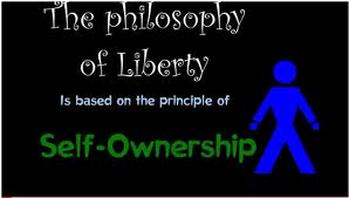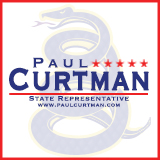To take a single step beyond the boundaries thus specifically drawn around the powers of Congress is to take possession of a boundless field of power, no longer susceptible of any definition."
--Thomas Jefferson: Opinion on National Bank, 1791
Among the first orders of business of the First Congress was the debate over establishing a bill of rights. Although the Constitution had made the separation and enumeration of powers very clear, the American people and the States wanted certain rights of the people to be explicitly stated within its text. After securing their independence from Britain, our Founding Fathers understood, better than anyone else, what freedoms a despotic and tyrannical government would attempt to take from the people.
The rights enumerated to the people in the bill of rights are those that are required to be exercised by the people if they are to retain their power over the government. For example, the inherent freedom of speech is one that any despotic government must take in order to control information. After all, knowledge is power; so whoever controls the dissemination of information has the power. Similar to the freedom of speech, the freedom of assembly, religion, and the right to bear arms and maintain a militia are all just as necessary to the people so they always have the means of establishing themselves as the ultimate authority over the government.
Not everyone believed that the bill of rights was necessary. For example, Alexander Hamilton believed that the structure of the Constitution was enough to bind down the federal government. He explains that the Constitution is set up so that the people of America “surrender nothing” by delegating powers to the central government. In that sense, Hamilton was right. Any federal legislation that falls outside of the confines of the Constitutional limits of Congressional power is by default unconstitutional; it is a breach of contract; it is an invasion of the sovereignty of the State or the States and the will of We the People. In Federalist No. 84, Alexander Hamilton uses the Preamble of the Constitution to explain that a bill of rights is not necessary. Hamilton wrote:
“[Our Constitution is] professedly founded upon the power of the people...Here, in strictness, the people surrender nothing; and as they retain everything they have no need of particular reservations. ‘WE, THE PEOPLE of the United States, to secure the blessings of liberty to ourselves and our posterity, do establish this Constitution for the United States of America.’ Here is a clear recognition of popular rights...”
Hamilton then went on to reference several articles, sections, and clauses which did, in fact, identify the structure of the new government as one that protects the rights of the people. Hamilton’s main fear was that the enumeration of certain rights would lead to the belief that those certain rights were all the rights of the people and that they were granted by the benevolence of the government. In the end, the will of the people and the States led to the ratification of the bill of rights.
With one hundred proposed amendments supplied to Congress by the States, James Madison initiated the debate. Of the proposed amendments, only ten were selected for ratification as the people’s bill of rights. Two amendments chosen for ratification, the ninth and tenth, were designed to be solid reinforcements of the limited role of the federal government. These two amendments did not enumerate any rights to the people; rather, they were composed in a manner that identified the rights of the people as almost completely unlimited.
The ninth amendment to the United States Constitution was written to explain that the people have rights that go beyond what is expressed in the bill of rights, thus eliminating Hamilton’s fear that a bill of rights would be identified as the entirety of the rights of the people. The Ninth Amendment states:
“The enumeration in the Constitution, of certain rights shall not be construed to deny or disparage others retained by the people.”
The Ninth Amendment gives explicit attention to the protection of liberty by preventing the federal government from reaching beyond its delegated powers. In other words, the Ninth Amendment is saying “just because we list some of the people’s rights it does not mean that we have listed all of the people’s rights.” It also means, “all the rights of the people need to be protected but here is a short list of the ones that need special attention.” The Ninth Amendment is not a delegation of power; it is a statement of understanding The Ninth Amendment ensures the context of the bill of rights as a protection of the people’s liberty; not as granting the peoples liberty. James Madison stated this understanding as he proposed the bill of rights on the House floor when he said:
“It has been objected also against a bill of rights, that, by enumerating particular exception to the grant of power, it would disparage those rights which were not placed in that enumeration, and it might follow by implication, that those rights which were not singled out, were intended to be assigned into the hands of the general government, and were consequently insecure. This is one of the most plausible arguments I have ever heard urged against the admission of a bill of rights into this system; but, I conceive, that may be guarded against.”
Just as the Ninth Amendment is written to reinforce personal liberty, the Tenth Amendment is written to reinforce the limitations of the federal government by making it clear that undelegated powers belong to the people unless given by the people to the States or the federal government. Just in case the Preamble to the Constitution wasn’t clear enough; incase Article 1 Sections 3 and 8 were not made clear at all; in case Article 2 Section 2 and Article 4 Section 4 left the American people wondering whether the States or the federal government had more authority to govern the people, our Founding Fathers added one last reinforcement for State sovereignty. That last reinforcement of State sovereignty came with the ratification of the Tenth Amendment to the Constitution. The Tenth Amendment says that before Congress can act, it must point to one of their enumerated powers as the source of their authority; and if they do not have that power enumerated to them, then it is a power left to the people. The Tenth Amendment states:
“The powers not delegated to the United States by the Constitution, nor prohibited by it to the States, are reserved to the States respectively, or the people.”
Paraphrased #1:
“All the powers we forgot to give the federal government and all the powers we forgot to tell the States they don’t have....those powers then, are by default, given to the States and to the people.”
Paraphrased #2:
“If they didn’t put it in the Constitution then they didn’t put it in Washington!”
It was America’s intent all along to keep the States free from intrusiveness that might someday come from an overbearing and tyrannical central government. Also, many people do not know that Article II of the Articles of Confederation, America’s first form of government, had a similar provision which clearly stated the same point:
“Each State retains its sovereignty, freedom and independence, and every power, jurisdiction, and right, which is not by this Confederation expressly delegated to the United States, in Congress Assembled.”
Much like the previous declaration in the Articles of Confederation, the Tenth Amendment to the United States Constitution defines the scope of federal power as only that power enumerated to the federal government by We the People. All power that is not enumerated to the federal government must necessarily remain with the States or the people. To further assure the American people of this limit on the federal government’s ability to intervene in their lives, James Madison wrote in Federalist No. 45:
“The powers delegated to the federal government are few and defined. Those which are to remain in the state governments are numerous and indefinite. The former [federal power] will be exercised principally on external objects, as war, peace, negotiation, and foreign commerce...The powers reserved to the several States will extend to all the objects which, in the ordinary course of affairs, concern the lives, liberties and properties of the people, and the internal order, improvement, and prosperity of the State.”
Should the people ever decide to enumerate any more power to the federal government, we can amend the Constitution to legally provide for that delegation of power. We have already discussed the amendment procedure which is detailed in Article 5 of the Constitution.
This is why we call it the federal government; because it is a federation of sovereign States. Governments exist on two levels in America: the defined sovereignty of the federal government and the indefinite sovereignty of the State governments. Madison referred to this when he said, “The powers delegated to the federal government are few and defined. Those which are to remain in the state governments are numerous and indefinite.” State Sovereignty is not unlimited, simply because the States have delegated some power to Congress. States do however have indefinite sovereignty because of the indefinite issues that exist outside of those powers delegated to Congress. James Madison, the Father of the Constitution and the drafter of the Bill of Rights, had this to say about the sovereignty of the States:
“[T]he government of the United States is a definite government, confined to specified objects. It is not like the state governments, whose powers are more general.”
By this point, we have come to understand that the United States Constitution is saturated with the idea of having sovereign States; free to exercise all the powers reserved to them outside of those delegated to the federal government. Not only have we found that the States have a larger array of powers but we have also found out that the federal government exist only for the benefit of the States so that they may enjoy domestic tranquility, a general welfare and have provided for them, a common defense. We have also discovered that the federal government, according to the Constitution prior to the ratification of the 17th Amendment, could only operate with the consent of the States. It is obvious, considering the principles outlined in the Declaration of Independence, that just as our government operates only with our consent for the protection of our rights, so does the federal government operate only with the consent of the States to protect the sovereignty of the States.
Copyright 2012 by Paul Curtman, All rights reserved. Don't Tread On Me! The Constitution and State Sovereignty. 2009


 RSS Feed
RSS Feed
